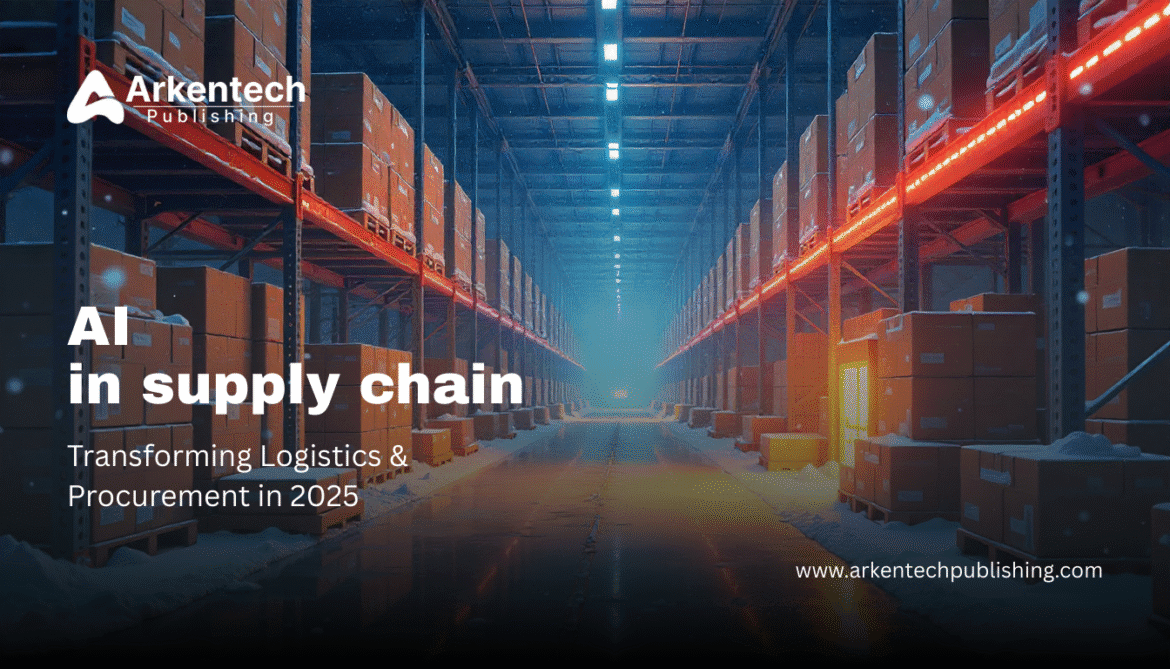In recent years, AI in supply chain operations has moved from being a futuristic concept to a business necessity. With global trade complexities, fluctuating consumer demands, and increasing pressure for cost optimization, artificial intelligence is becoming a strategic driver for efficiency and resilience. In 2025, companies that leverage AI-powered solutions are experiencing faster decision-making, improved accuracy, and better risk management compared to traditional methods.
1. Understanding the Role of AI in Supply Chain
Artificial Intelligence in supply chain management is not just about automation—it’s about enabling intelligent decision-making. AI technologies like machine learning, predictive analytics, natural language processing, and computer vision are being integrated into logistics, procurement, and inventory systems.
From predicting demand spikes to identifying supplier risks, AI empowers businesses with data-driven insights that can be acted upon in real-time.
2. Key Benefits of AI in Supply Chain
a. Accurate Demand Forecasting
AI-powered algorithms analyze historical sales, seasonal patterns, and market trends to forecast demand with remarkable accuracy. This helps companies avoid overstocking or understocking issues, improving both profitability and customer satisfaction.
b. Improved Inventory Management
Through predictive analytics, AI optimizes inventory levels, ensuring that products are stored, shipped, and replenished at the right time and place.
c. Enhanced Supplier Risk Management
AI systems can monitor supplier performance, detect potential disruptions, and suggest alternative sourcing strategies to mitigate risks.
d. Real-Time Decision Making
By processing vast amounts of supply chain data instantly, AI enables managers to make faster and more informed decisions.
3. Use Cases of AI in Supply Chain
- Predictive Maintenance in Logistics: Sensors combined with AI models can forecast equipment failures before they happen, reducing downtime.
- Dynamic Route Optimization: AI can calculate the most efficient delivery routes based on traffic patterns, weather conditions, and fuel efficiency.
- Automated Quality Control: Computer vision systems inspect products for defects, ensuring higher quality standards.
- Chatbots for Procurement: AI-driven chatbots streamline supplier communication and automate repetitive procurement tasks.
4. Challenges of Implementing AI in Supply Chain
While AI provides huge benefits, there are challenges that should address businesses:
- Higher initial investment: AI system requires significant advance costs, which can be a barrier for small and medium -sized companies with limited budgets.
- Problems with data quality: AI models depend on accurate and clean data; Poor data quality, fragmented system or inconsistent reporting can lead to wrong predictions and expensive operating errors.
- Skills difference: Companies require effective professionals to manage AI units, explain insights and maintain the system, but maintaining and maintaining such talent is still an important challenge.
- Change management: AI-operated solutions require cultural and operational adaptation for infections from traditional supply chain systems, as well as to overcome the resistance of personnel training and new techniques.
5. Future of AI in Supply Chain
The future of AI in supply chain is promising, with trends like digital twins, autonomous delivery vehicles, and AI-powered sustainability tracking gaining momentum. Digital twins—virtual replicas of physical supply chain networks—allow businesses to simulate different scenarios and optimize performance without disrupting operations.
Moreover, AI will play a critical role in achieving green supply chain goals by monitoring carbon emissions, optimizing energy usage, and promoting ethical sourcing practices.
Final Thoughts
The emergence of AI in supply chain management marks a transformative era for global trade, logistics and purchases. The AI embrace companies today make working with high efficiency, low risks and more and more customers’ satisfaction. As technology continues to move, integration into AI supply chain operations will no longer be a competitive advantage – this will be standard. Companies that are unable to overhaul the risk, while those who invest early will unlock innovation, promote flexibility and create smarter, more durable ecosystems for the supply chain that are able to conclude in a rapidly changing global market.

